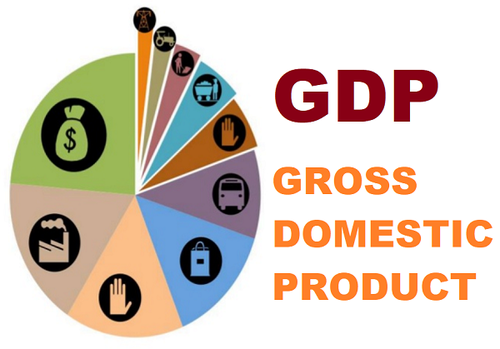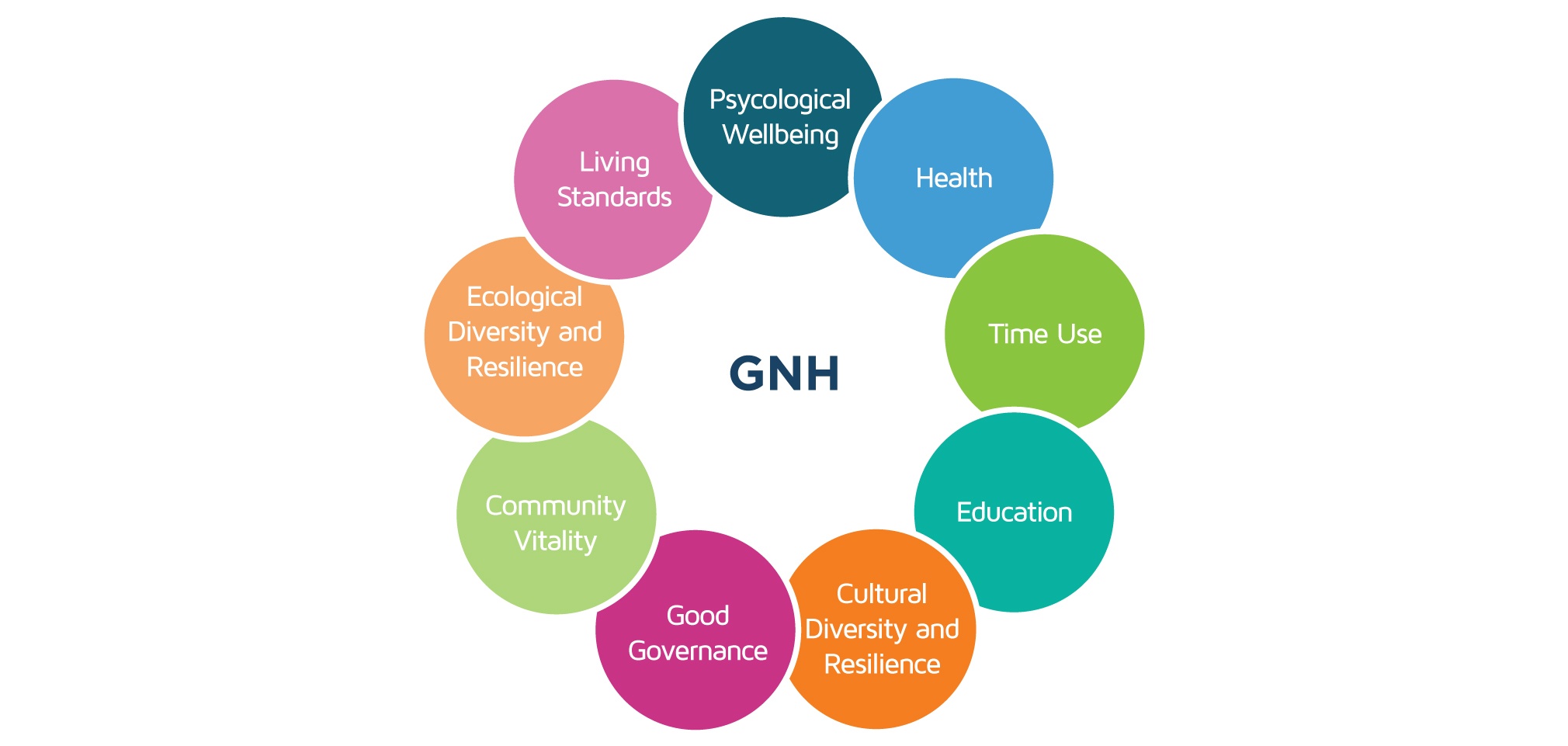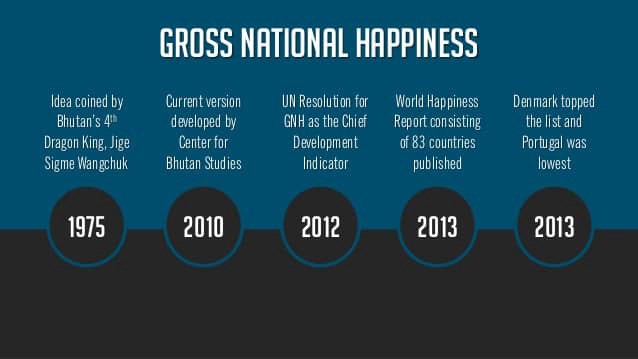By Anna Tsekani,
As it is well known, countries have been measuring their success since time immemorial by the size of their territory, population growth, and GDP (gross domestic product) growth. Most industrialized countries are taking measurements and shifting their education, health, and welfare systems, with the ultimate goal of strengthening the nation rather than ensuring population happiness and individual well-being.
GDP is the monetary value of final goods and services produced in a country over a given time period; it includes all outputs produced within the borders of that country. GDP is made up of marketable goods and services, as well as some nonmarket production, such as government-provided defense or education services. However, GDP does not include all productive activity, and some underlying factors are not discussed. Unpaid work and black market activities are common examples because they are difficult to accurately measure and value.
GDP is significant because it provides information about the size and performance of the economy. The rate of real GDP growth is frequently used as an indicator of the economy’s overall health, but not of population health.

At the end of the nineteenth century, countries such as France, Germany, and Japan began providing free health care to the masses. They funded childhood vaccinations, balanced diets, and physical education for teenagers, with the ultimate goal of making the country stronger rather than happier. Even the welfare system was created with the nation’s interests in mind, rather than individual needs.
Nonetheless, people are increasingly convinced that the vast system should serve individual citizens’ happiness and well-being. Nowadays, thinkers, politicians, and even economists advocate for GNH (Gross National Happiness) to supplement or even replace GDP because people’s ultimate desire is the right to happiness — human beings have a natural right to happiness. Production is important because it provides the material baseline for happiness. But this is only the start, not the end.
Bhutanese economist, academic, and 4th King of Bhutan, King Jigme Singye Wangchuck, was the first to introduce the concept of Gross National Happiness. He declared in 1972 that “Gross National Happiness is more important than Gross Domestic Product”. This concept implies that sustainable development should take a holistic approach to notions of progress and give equal weight to non-economic aspects of well-being, while Bhutan provides free education and free health care to all of its citizens.
GNH can be used to measure how people feel about their lives, implying that happiness will be used in measuring development, as well as to compare different countries’ economic performance. Other living standards, such as food security, education, healthcare, and housing conditions, can be included in GNH. A distinct indicator from GDP measures the total value of all goods and services produced by an economy over a given time period.

The concept of Gross National Happiness has influenced and shaped Bhutan’s economy and social policy while also capturing the imagination of people far beyond the country’s borders.
Bhutan’s impressive track record stems from its willingness to explore areas of potential and use innovative approaches to address structural challenges. Aside from achieving 100 percent electricity access, Bhutan has benefited from niche markets, digital transformation, and innovative finance, all of which could be replicated.
According to the UNDP Human Development Report 2020, Bhutan has one of the highest levels of human development while also having low carbon emissions, a high level of carbon sequestration, and hydroelectricity exports, making Bhutan the only carbon-negative country in the world.

High levels of gross national happiness do not imply that territory or country has solved all of its problems. Bhutan, in fact, is romanticized by the outside world, but the country still faces crucial challenges to its economic development. Youth unemployment in Bhutan was 13.2 percent in 2016, up from 10.7 percent the previous year, according to government data, while Bhutan’s GDP was 2.2 billion dollars in 2016, according to the World Bank, putting the kingdom on the UN list of “least developed countries”. At the same time, Bhutan’s small size is an impediment to its economic development. Bhutan cannot compete in the global market on a large scale due to the small size of the domestic market, dispersed pockets of production, and the absence of economies of scale, combined with a landlocked status and high trade costs.
Even if we are slightly happier than our forefathers, the increase in happiness is far less than we might have expected. It appears that future generations and the government’s ultimate goal will be to serve their happiness. This may appear to be a simple project at first glance. Although happiness is a fact that affects every human being, the implementation of the indicator of gross national happiness may appear beneficial and promising, but there are numerous risks that must be considered.
References
- Gross Domestic Product: An Economy’s All, imf.org, Available here
- What is Gross National Happiness (GNH)?, optimalhappiness.com, Available here
- What Bhutan got right about happiness – and what other countries can learn, weforum.org, Available here
- The Birthplace Of ‘Gross National Happiness’ Is Growing A Bit Cynical, npr.org, Available here




